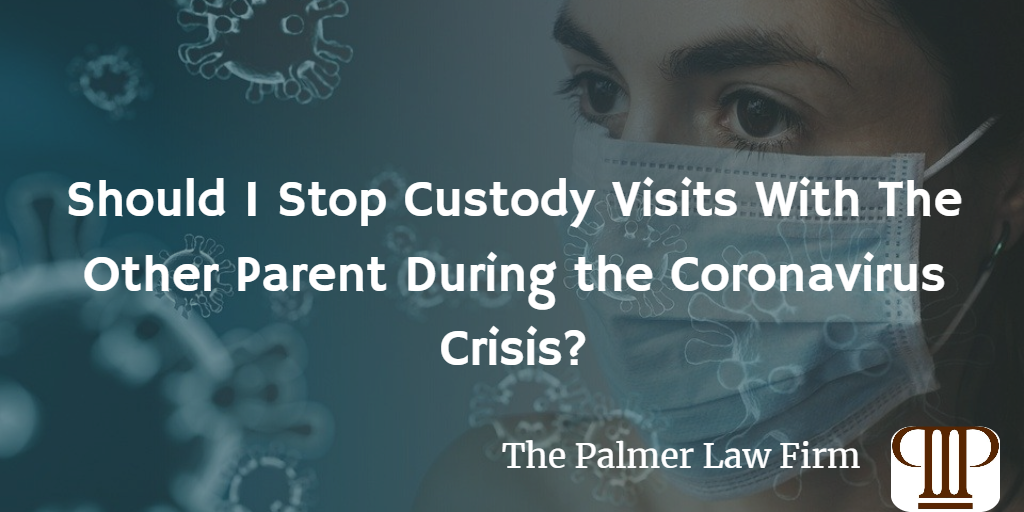 A federal judge overturned Attorney General Ken Paxton's recent ban on most abortions, the Austin American-Statesman reports. Paxton's ban came last Monday after Governor Greg Abbott issued an executive order that prohibited all non-life-saving medical procedures so that health care providers can focus on responding to the coronavirus. The order quickly faced a legal challenge from abortion services providers, and was ultimately blocked by U.S. District Judge Lee Yeakel, who determined the ban violated the constitution. "Regarding a woman's right to a pre-fetal-viability abortion, the Supreme Court has spoken clearly," Yeakel wrote in his decision Monday. "There can be no outright ban on such a procedure."
0 Comments
We are all in a very stressful and fearful time with the outbreak of the COVID-19 virus changing the way we live our lives. Many people have been sent home from jobs or limited in interacting in large groups. For our children, schools are closing and many normal extracurricular activities have suddenly stopped. To stop the spread of this highly infectious disease, we are being told to practice “social distancing”- staying away from other people and especially larger groups.
But what about families with custody orders? To date there has been no clear message about how families should address this, and for families who already find themselves in high conflict custody arrangements, the strain will be tremendous and the path confusing. Should periods of visitation with non-primary parents be discontinued along with other “social distancing”? What will be the repercussions if I keep my child from the other parent and how can I avoid them? Here are some clear answers to these questions: 1. Don’t deny visitation to the other parent unless you have a very good reason. If you are the primary caregiver and the other parent has periodic visitation, you may be tempted to deny the other parent their weekend visitation during this crisis out of general fear that your child may become infected at the other parent’s house. Before you unilaterally disregard your custody order, you should consider very carefully whether you have any real reason to do so. The consequences of violating the custody order may be very real and land you in real trouble with the courts. Our Harris and Galveston County Judges take a dim view of people violating orders- even if the reasons are well intentioned. Denying visits may result in severe consequences for you and may give cause for a change of primary custody to the other parent or even a jail sentence in some cases. 2. Communicate and find common ground for decisions. Before you decide on your own to deny visitation with the other parent, communicate with the other parent about your fears and try to come to an agreement about temporary modifications to the visitation schedule. You may find they share the same fears about the child being in your home. If your co-parenting has been high-conflict up to this point, however, you may find this very difficult. But you must put your best effort forward. Even if you have had difficulty in communicating in the past, both parents should try to put that aside (at least until this crisis is passed). One of the best ways to handle the situation is to adopt a business-like and professional attitude to deal with the issues at hand. Try to be focused and avoid emotional reactions. Tell the other parent exactly what you want to talk about and stick to that only. If they try to bring up the past or get off topic remind them of the urgency and importance of coming to agreements on how to handle the visits during this crisis. You both may have different viewpoints of what is the best action to take with regard to keeping your child healthy. With so many conflicting messaging on social media and the mainstream news, it is not surprising you both would have different ideas. The most important thing is to be consistent between the two parents. This situation is like no other and was very likely not conceived of when you made your custody order. You may be called upon to make decisions that are outside the order. Try to find a neutral and reliable source for a tie-breaking resource if you both disagree on how to manage this crisis. Try to agree on one source for recommendations for your child’s safety and agree that you will both use that source for co-parenting decisions that are not covered in your court order. You may agree to follow the advice of the child’s pediatrician for guidance. This is especially important if your child is immunocompromised or has another underlying health condition. Or you could both agree to follow the latest recommendations found on the CDC’s website or the Texas Health and Human Services. Whatever source you decide on , it is important that you both avoid the added conflict and stress of disagreement and you should find as much common ground as possible. One good start in finding common ground may be in that you both express your fears for your child and reaffirming that you each love your child and have their best interest at heart. 3. Think of creative solutions. What solutions could you come up with that would satisfy each of your concerns about infection and health vs. the legitimate right and need of the child having contact with both parents? If infection is a legitimate concern such as if one parent has been exposed to an infected individual, is it possible to agree to temporarily have visits outdoors and agree to keep the recommended distance from the child- perhaps playing catch, kickball or similar activity? This may sound outlandish in different times, but these are unusual circumstances. Can the parent have Facetime (or increased facetime). Can you agree that the other parent will have additional periods of time with the child to make up for time lost during this crisis? 4. Get an agreement in writing. Get the agreement in writing and make sure each parent has a signed copy. Insist that each have it notarized if you feel this is necessary. A signed agreement can be used in court to defend yourself if the other parent claims you have unilaterally violated the order. 5. If you can’t come to an agreement, you must file a modification request with the Court. If you legitimately believe that child is at increased risk of infection if they are allowed visits with the other parent and you can’t agree with the other parent on a modification of the custody arrangement, then you must consider filing a Motion to Modify the Parent-Child Relationship and request emergency temporary orders to discontinue the visits. If you don’t do this, you run a high risk of being held in contempt of court for denying the other parent’s court appointed visitation. You will also have to execute and attach a “significant impairment affidavit” that details why you believe physical contact with the other parent would endanger the child. The standard on getting such emergency temporary orders however is very high. General or undefined fears will not be sufficient. You will have to have special compelling reasons to believe that visits with the other parent will significantly impair the child’s health. Reasons that may be warranted, if proved, could be:
If you have any questions, please contact us at The Palmer Law Firm. We encourage you to schedule a free call with one of our family lawyers, or come see us in person. We have leveraged technology with our online client portal, electronic forms and e-signature document capacities to minimize your need to make trips from your home to advance your legal issue. If you do choose to visit us in person, you can rely on us for clean offices with restrooms and hand washing facilities and hand sanitizer. We are here to help. You can book your free appointment by visiting us at www.thepalmerlawfirm.com or call at 832-819-3529. |
Need more information about this or other family law topics in Texas?
Click the button below to book a FREE ATTORNEY CONSULTATION (832) 819-3529
Attorney Sean Y. Palmer has over 20 years of legal experience as a Texas Attorney and over 25 years as a Qualified Mediator in civil, family and CPS cases. Palmer practices exclusively in the area Family Law and handles Divorce, Child Custody, Child Support, Adoptions, and other Family Law Litigation cases. He represents clients throughout the greater Houston Galveston area, including: Clear Lake, NASA, Webster, Friendswood, Seabrook, League City, Galveston, Texas City, Dickinson, La Porte, La Marque, Clear Lake Shores, Bacliff, Kemah, Pasadena, Baytown, Deer Park, Harris County, and Galveston County, Texas.
Call (832) 819-3529 If you live in the Houston area and would like to consult with one of our attorneys, please leave your information below.Archives
July 2024
Categories
All
|
The Palmer Law Firmwww.thepalmerlawfirm.com
(c) 2024 Sean Y. Palmer |
DISCLAIMER:
This website is for educational and informational purposes only and is not, nor is it intended to be, legal advice. Viewing of this website does not create an attorney-client relationship. All legal matters should be discussed with a licensed attorney before you take any action. You should consult with an attorney for advice for your individual situation. Sean Y. Palmer is the attorney responsible for the content of this site. DATA NOTIFICATION: Pursuant to the Health Insurance Portability and Accountability Act, and the Texas Medical Records Privacy Act of the Texas Health and Safety Code, consumers are noticed that their protected healthcare information may be transmitted electronically. |



 RSS Feed
RSS Feed